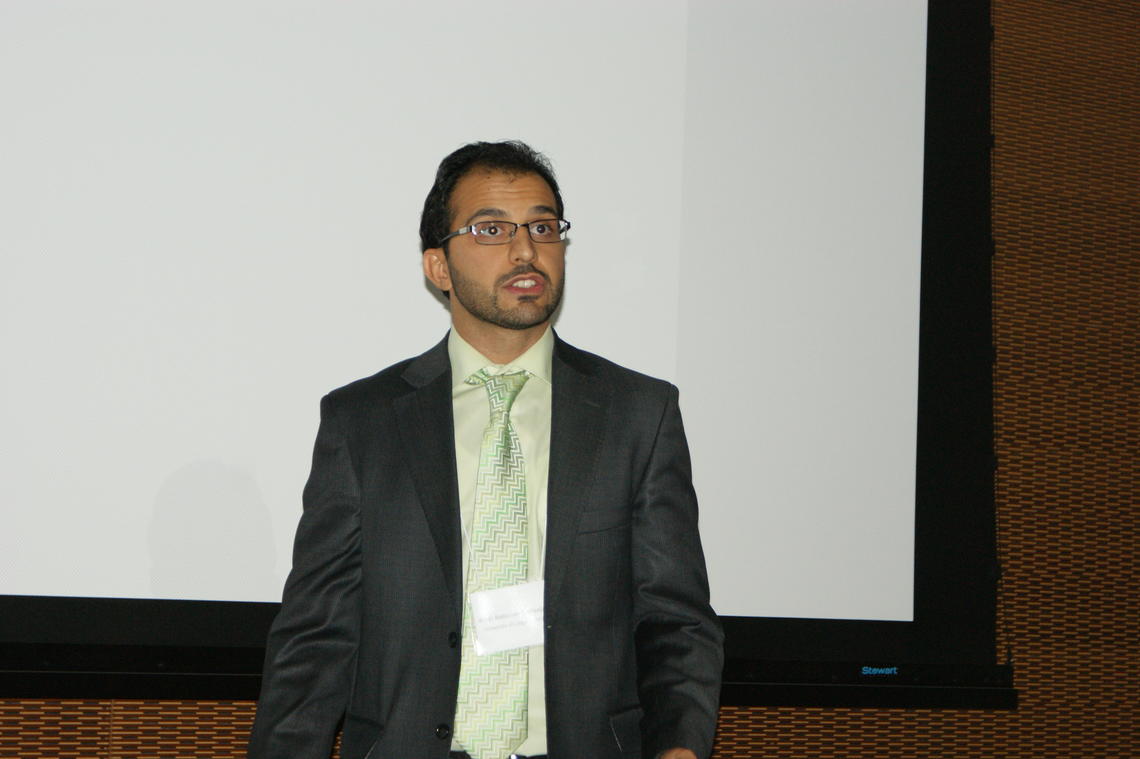
Radnejad, GEES president, says the aim was to get graduate students to speak more with each other.
Nov. 18, 2013
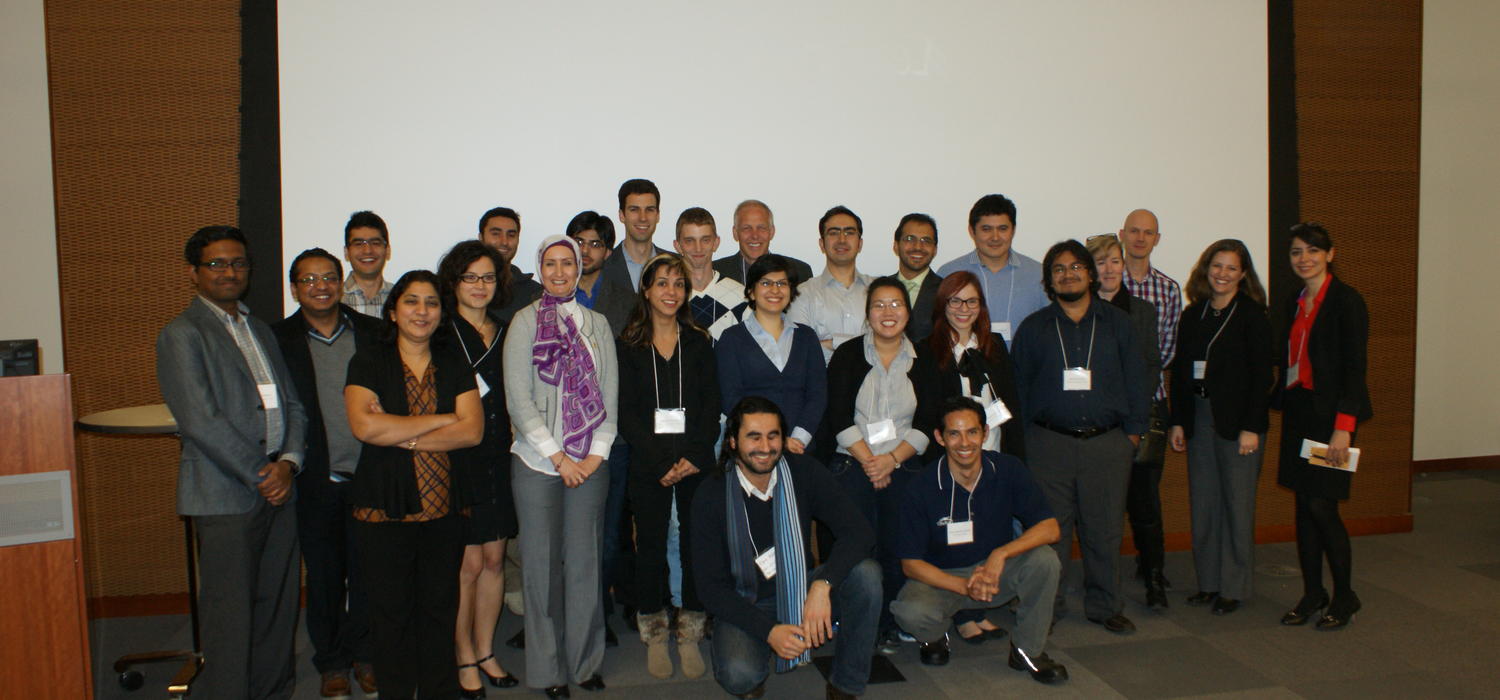
What do all these things have in common: consumer choices, life cycle assessment, smart grids, glaciers, wind turbines, oilsands and energy systems analysis?
They are just some examples of the diverse interdisciplinary energy-environment research presented by University of Calgary graduate students at the first annual Energy and Environmental Systems Research Day on campus.
The Graduate Students’ Association for the Energy and Environmental Specialization (GEES) organized last Friday’s all-day event, co-sponsored by the Faculty of Science and Innovate Calgary.
“We wanted to encourage graduate students working in the energy-environment area to talk with each other more, to realize they have this opportunity to collaborate on interdisciplinary research,” says Bahman Radnejad, president of GEES and a PhD student in the Haskayne School of Business.

Radnejad, GEES president, says the aim was to get graduate students to speak more with each other.
Exposure to industry challenges, commercial opportunities
Innovate Calgary, which helps take University of Calgary researchers’ ideas to commercialization, wants to identify those ideas as soon as possible, so the research expertise can be matched to problems facing the energy industry, says Ken Porter, vice-president of intellectual property management at Innovate Calgary.
“Some of the oil and gas companies are very interested in working with University of Calgary faculty,” he notes.
By supporting Energy and Environmental Systems Research Day, “the more exposure Innovate Calgary has with the students and the faculty, the better known we are, and the better partner we’ll be with the university,” Porter says.
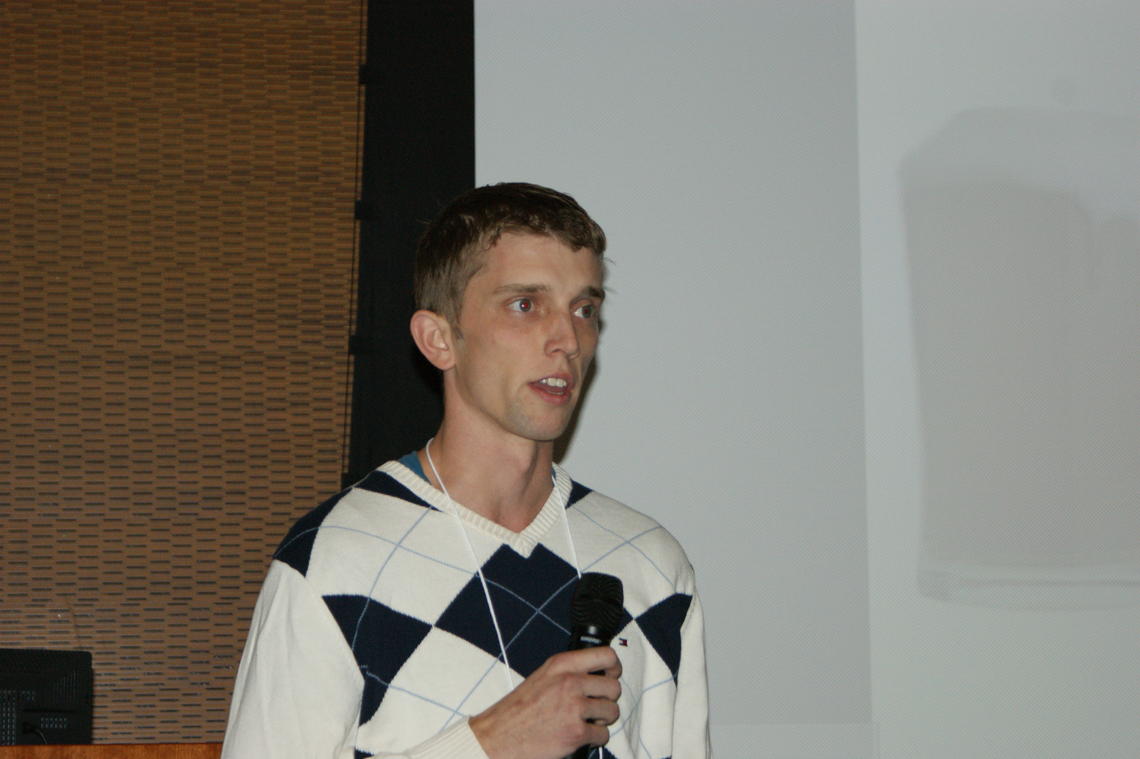
Marc Demeter was assessed as the 1st prize presenter.
Energy and environmental specialization is truly interdisciplinary
The Energy and Environment Systems (EES) specialization “is truly interdisciplinary” with graduate student research that crosses all disciplines, Brian Keay, vice-dean of the Faculty of Science and interim executive director of the Institute for Sustainable Energy, Environment and Economy (ISEEE), told participants.
The specialization, administered by ISEEE, is an add-on specialization (noted on the degree) for grad students working on master's or PhD degrees in their home faculties.
Environmental and Energy Systems Research Day featured 10-minute research presentations by 20 EES grad students, including from the Schulich School of Engineering, the Haskayne School of Business, and the faculties of Science, Environmental Design, and Arts.
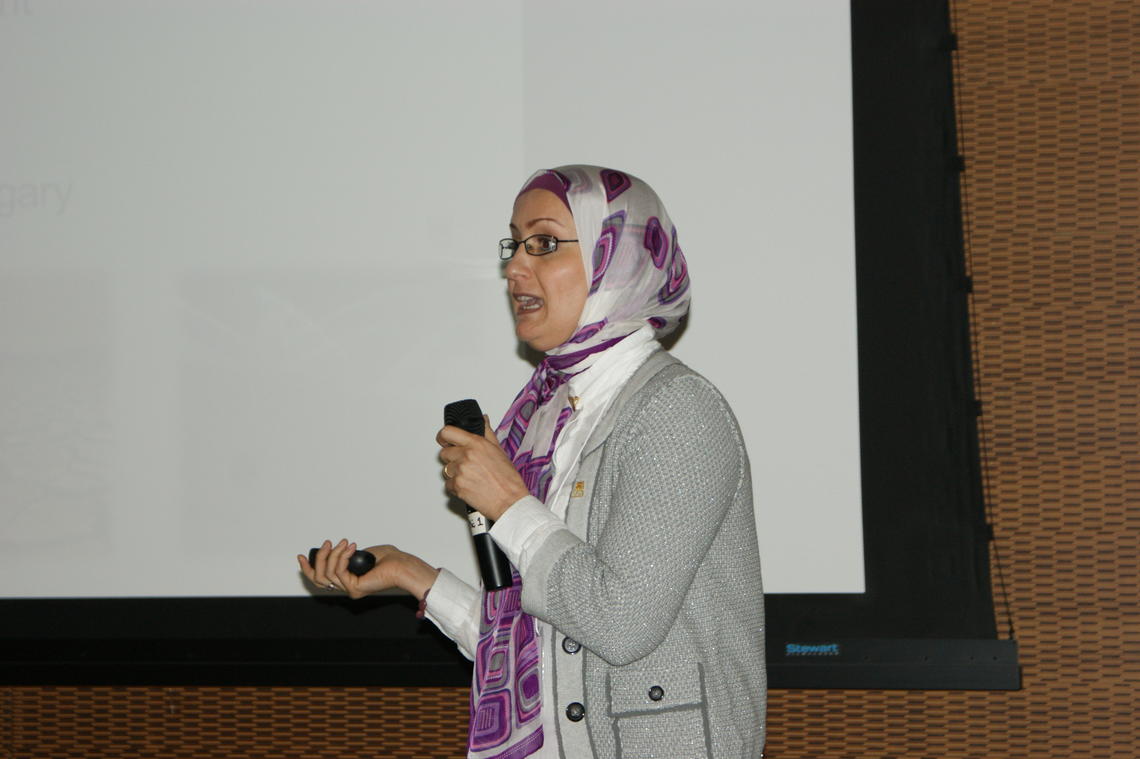
Maha Al-Zu’bi's research focuses on climate change impacts in the Arab region's cities.
Opening channels between five faculties
“There are common issues that we’re all working on,” says Maha Al-Zu’bi, a PhD student in Environmental Design whose research focuses on climate change impacts on water, energy and food in the Arab region’s cities.
“This event gives us the opportunity to listen to others from different perspectives and disciplines . . . it’s a pool of talented people sharing their knowledge and experience,” she says.
Matt Godfrey, a master's student in the Department of Communication and Culture whose research focuses on environmental metrics and consumer choices, says the research day helped him understand other interdisciplinary students’ research. “I didn’t actually grasp it until I saw it presented today and got to hear what their research is about.”
All the research presentations were videotaped so students could review and improve their performance before they defend their theses.
A panel of five judges that included faculty, postdoctoral fellows, research associates and guests assessed the presentations. Awards were presented to the top three presenters:
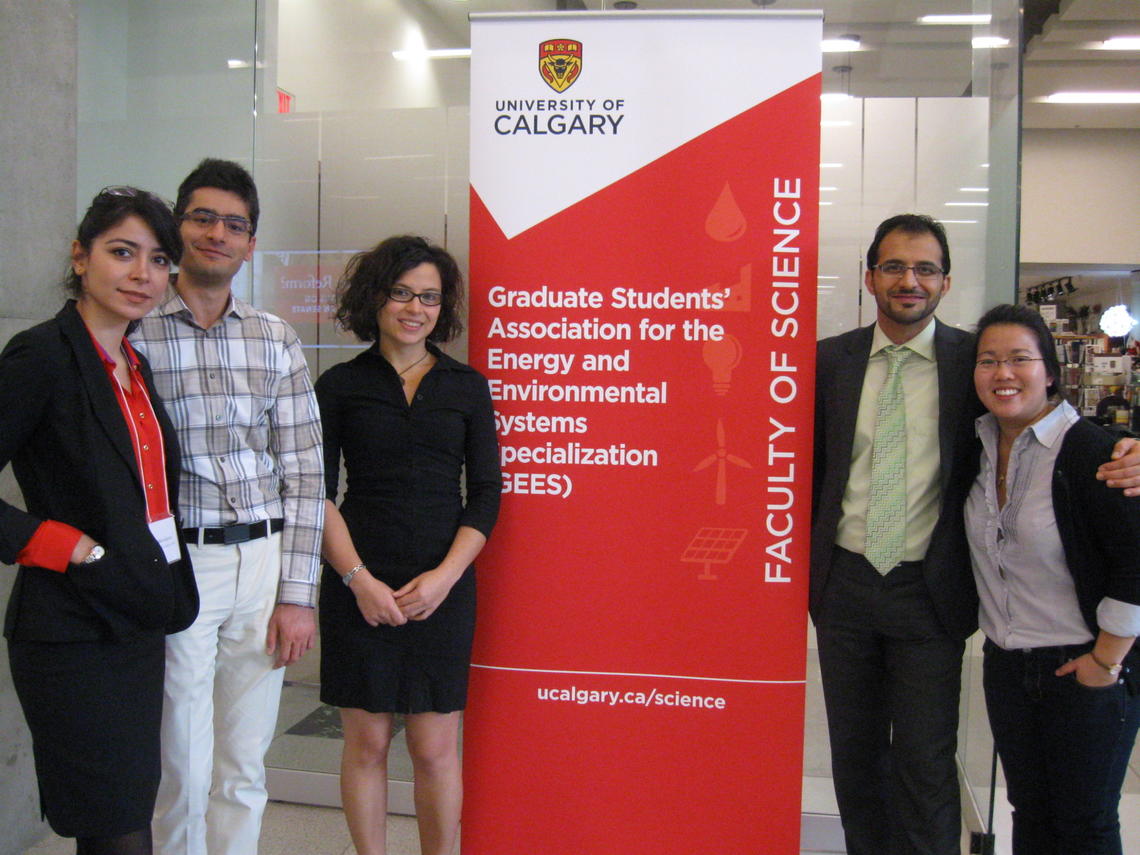
From left: Nikou Sabzevar, Hamid Shaker, Aida Nciri, Bahman Radnejad, and Sara Goto.
List of grad students and presentations:
Policy and Decision Making:
Renewable Energy:
Environment and Climate Change:
Greening Fossil Fuels: